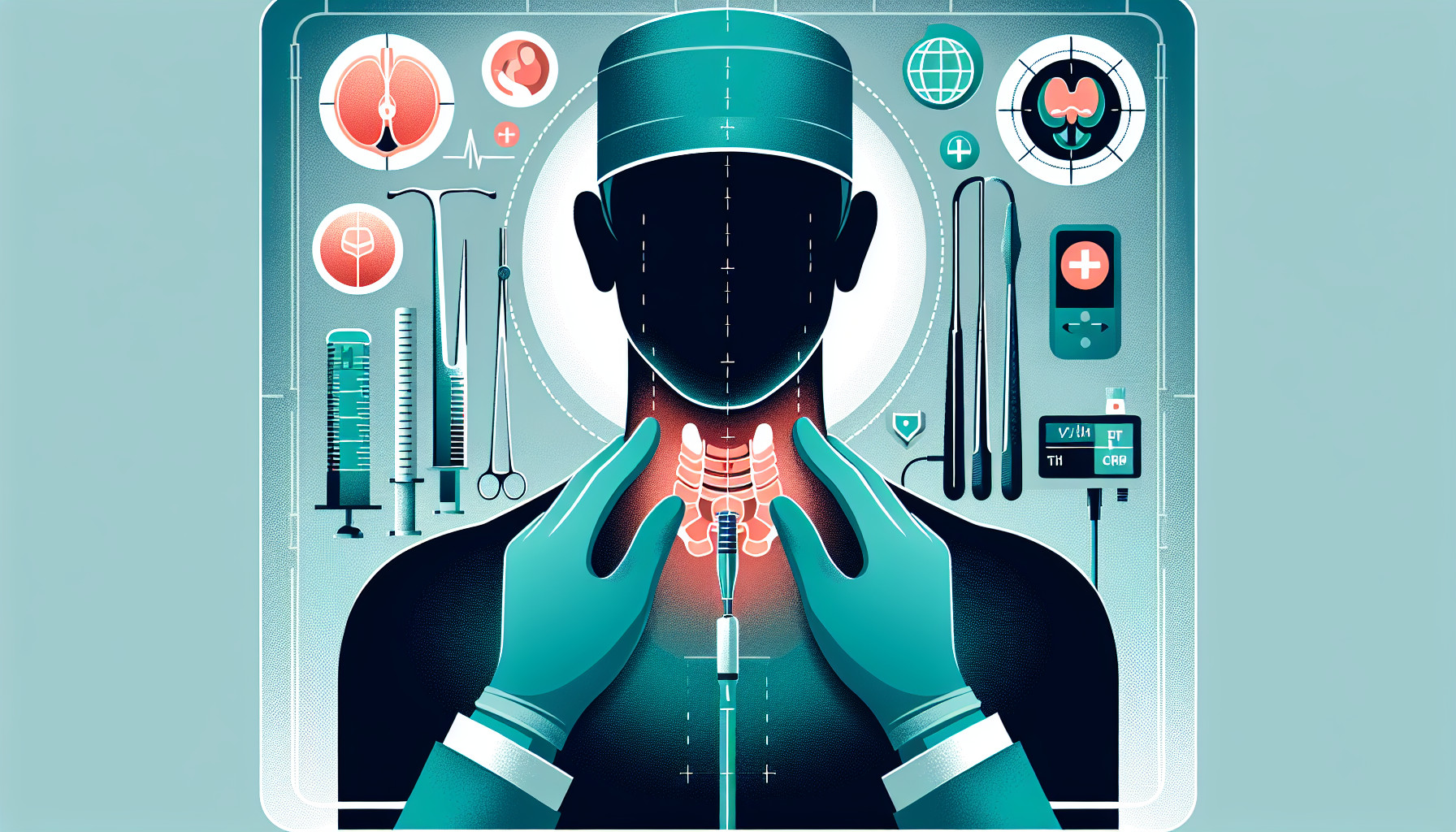Our Summary
This research paper is about a study that looked at the risk of accidentally removing the parathyroid glands during thyroid surgery. The parathyroid glands are little glands near the thyroid that control the amount of calcium in our bodies. This is important because calcium is needed for our nerves and muscles to work properly.
The researchers looked at the medical records of all patients who had thyroid surgery at their hospital between January 2012 and December 2014. They were interested in things like why the surgery was done, what exactly was done during the surgery, whether the parathyroid glands were accidentally removed, and if the patients had low calcium levels after the surgery.
They found out that out of 230 surgeries, the parathyroid glands were accidentally removed in 40 cases. This happened more often when the patient had cancer and when the surgery was more extensive. However, it did not matter if the patient was a man or a woman, how old they were, or whether part or all of the thyroid was removed.
After the surgery, only four patients had low calcium levels, and in three cases, this was temporary.
So, the researchers concluded that there is a risk of accidentally removing the parathyroid glands during thyroid surgery, but it does not often lead to low calcium levels. The risk is higher for patients with cancer and those who need more extensive surgery.
FAQs
- What is inadvertent parathyroidectomy and how often does it occur during thyroid surgery?
- What factors increase the risk of inadvertent parathyroidectomy during thyroid surgery?
- Is there a significant difference in the risk of inadvertent parathyroidectomy between hemi- and total thyroidectomies?
Doctor’s Tip
One helpful tip a doctor might tell a patient about parathyroidectomy is to closely monitor their calcium levels post-operatively and to follow up with their healthcare provider if they experience any symptoms of hypocalcemia, such as muscle cramps, tingling in the hands and feet, or fatigue. It is important to address any changes in calcium levels promptly to prevent complications.
Suitable For
Patients who are typically recommended for parathyroidectomy include those with primary hyperparathyroidism, secondary hyperparathyroidism, tertiary hyperparathyroidism, parathyroid adenoma, parathyroid hyperplasia, parathyroid cancer, and patients with symptoms of hypercalcemia such as kidney stones, bone pain, fatigue, and muscle weakness. Additionally, patients who have failed medical management or have severe symptoms may also be recommended for parathyroidectomy.
Timeline
Before parathyroidectomy: The patient may experience symptoms such as fatigue, weakness, bone pain, kidney stones, and changes in mental status due to hyperparathyroidism. They may undergo testing such as blood tests, imaging studies, and possibly a biopsy to confirm the diagnosis. The decision to undergo parathyroidectomy is made based on the severity of symptoms and the results of diagnostic tests.
After parathyroidectomy: The patient will undergo the surgical procedure to remove the diseased parathyroid gland(s). They may experience temporary symptoms such as neck pain, hoarseness, and difficulty swallowing immediately following the surgery. Post-operatively, the patient will be monitored for signs of hypocalcaemia, which can occur if the remaining parathyroid glands are unable to produce enough parathyroid hormone. This may require treatment with calcium and vitamin D supplements. Over time, the patient should experience improvement in their symptoms and overall health due to the normalization of their calcium levels.
What to Ask Your Doctor
- What is the purpose of a parathyroidectomy?
- What are the potential risks and complications of a parathyroidectomy?
- How will I know if I need a parathyroidectomy?
- What are the different types of parathyroidectomy procedures and which one is recommended for me?
- How long will the recovery process be after a parathyroidectomy?
- Will I need to take any medications or make lifestyle changes after the procedure?
- What should I expect in terms of follow-up appointments and monitoring after a parathyroidectomy?
- Are there any specific factors in my medical history that may affect the success of the procedure?
- How experienced are you in performing parathyroidectomies?
- Can you provide me with information about the potential outcomes and success rates of a parathyroidectomy in my case?
Reference
Authors: McGoldrick DM, Majeed M, Achakzai AA, Redmond HP. Journal: Ir J Med Sci. 2017 Nov;186(4):1019-1022. doi: 10.1007/s11845-017-1560-9. Epub 2017 Feb 2. PMID: 28155099
